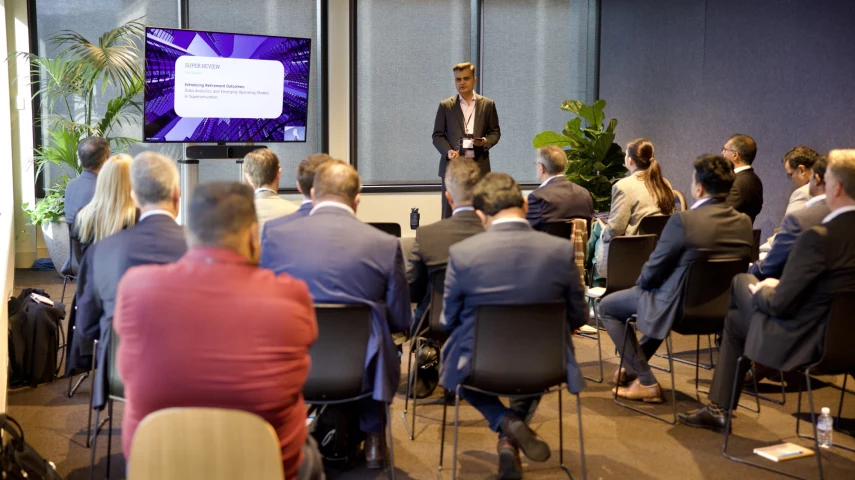Legacy systems holding super back, say Wipro and TPT



Australia’s $4 trillion superannuation industry is at a critical digital crossroads, with outdated systems threatening funds’ ability to keep up with rising member expectations and increasing regulatory demands.
At an exclusive event in Melbourne hosted by Super Review in partnership with Wipro, Alex Roopesh Abraham, Wipro’s superannuation general manager, called for an urgent move away from old-fashioned, monolithic administration models.
“Traditional models often take a ‘black box’ approach to outsourcing their administration or are running on legacy in-house systems. Both represent an era when member engagement was quite low on the priority list,” Abraham said in a LinkedIn post following the event.
“Members were also happy letting their super be a ‘black box’ too. But that approach fails to keep up with modern member desires, as well as the increased regulatory focus on efficiency and member experience.”
Speaking at the exclusive event, Philip Smith from UK-based TPT Retirement Solutions shared the fund’s own journey, detailing how around three years ago, they launched a major overhaul after years locked into an outsourced back office run from India on a third-party tech platform.
“We had zero control over our customer experience,” Smith said.
“When we began this journey, I guess the idea of re platforming and moving filled us with horror because of the scale of that task. We began the journey working with our existing partner and looking at the key things that we were trying to achieve, which was really to take control of the customer experience … have a lot more visibility of workflow, enabling us to enhance our governance… and drive member engagement.
“Where we landed was that over a period of two to three months, it became increasingly clear that our legacy partner was not going to be able to really help us. So we decided then to move on.”
Following a rigorous RFP process involving 35 vendors, TPT partnered with Wipro and GBST. Its focus: an open architecture, modular back office, and full control over the member experience.
The goal was ambitious: lift straight-through processing from 75 per cent to over 90 per cent and cut cost to serve per member by 25 per cent over five to 10 years.
“We’re really passionate about our customer satisfaction scores and we really wanted to drive those up, really up into the high quartile. Not just pension organisations, but broader financial services organisations,” Smith said.
So far, member engagement metrics reflect the shift with 45–50 per cent open rates on communications and 10–11 per cent click-throughs, figures well above UK industry norms.
“We think that that’s quite good,” Smith said.
Abraham said that younger, digitally native members now expect seamless digital experiences, with 65 per cent wanting end-to-end online servicing, according to the OECD Pensions Markets in Focus 2024 report.
“In TPT’s case, a dynamic operating shift delivered efficiency improvements but also real value to its members and the ability to respond quickly to evolving regulations,” Abraham said.
“We know how competitive the super industry has become. Static products and services must be consigned to the history books to make way for dynamic, responsive offerings that can be tailored to individuals and adapted quickly to incorporate new options and opportunities.
“Fear cannot be the cause of delay when the greatest long-term cost is remaining on outdated operating models.”
Recommended for you
The Gateway Network Governance Body has unveiled a detailed roadmap to guide the superannuation industry through the upcoming Payday Super reforms.
CPA Australia urges the ATO to extend compliance support for small businesses facing major system changes ahead of Payday Super reforms.
Superannuation funds ramp up collective efforts to counter rising cybercrime, updating standards and sharing intelligence across the industry.
The regulator has fined two super funds for misleading sustainability and investment claims, citing ongoing efforts to curb greenwashing across the sector.









